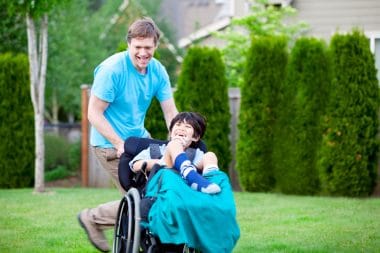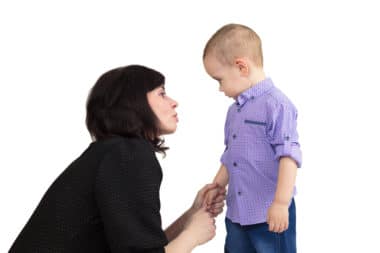Arguing and bickering between siblings is to be expected. Disagreeing on what to play, what show to watch, what to listen to on the radio is normal sibling behaviour. Though when the arguing becomes a one way street from one sibling and becomes repetitive, intentional, intimidating, and meant to degrade the other sibling then the normal sibling bickering has now turned into sibling bullying.Â
What Is Sibling Bullying?
Sibling bullying is the most common type of family violence. The bully knows what they are doing is hurtful and mean but continues anyway. This can be name calling, humiliation, intimidation, or physical abuse. Bullying doesn’t have to just be fighting and hitting. It is important to keep an eye out with your kids arguing to make sure that the normal bickering doesn’t turn abusive. Â
Causes & Risk Factors:
Children aren’t usually born into being bullies. It is something that they develop. Any sibling can become a bully, but majority of the time it is either first borns or boys that become the bully in the family. First borns are more at risk because all of a sudden they have to share time, toys and attention with someone else. This can lead to feelings of resentment, which can then lead the first born into acting out.Â
Sometimes though parents can play a role into why their child has started being a bully. This can happen by letting your children fight without intervening. The fight it out method is not always best especially when one child is doing the majority of the hurtful behavior.Â
Family stressors can also play a role such as a divorce, moving, a death of a relative or pet, or even the birth of a new baby. Â
Jealousy, anger, and resentment are the main emotions that can lead a child into becoming a bully. Learning to help diffuse these emotions can help your child not turn to bullying. Make sure your child knows you are listening to how they are feeling and not pushing aside their emotions. They are allowed to feel negative emotions, it is just how they handle them that we need to help guide. If your child feels angry, tell them they can scream into a pillow, or draw a picture of them angry, but hitting or name calling is not an acceptable way to express their anger.Â
Tips For Dealing With A Sibling Bully:
If you start to notice that one of your children has started bullying another child in the household when disagreements arise, make sure you intervene immediately. Separate the two children and let them cool down independently. Then when everyone is calm bring them back so each child can say calmly what is wrong without interruption from parents or the other sibling.Â
Make sure your child knows that bullying is not acceptable and the behavior is not tolerated. When you hand out consequences, make sure it is severe enough that this behavior should not happen again. Â
Another thing to do is make sure you children know what the rules in the household are. No hitting, no name calling, or no negative words. Instead of focusing on just “no” rules, you can make a rule where you are only allowed to have your words to be nice gifts to one another. This then makes your rule be positive or we only say nice things to each other, and doesn’t focus on what you aren’t allowed to do. Â
If an older sibling is doing the bullying, remind them that their younger sibling looks up to them. This can sometimes give the older sibling a sense of responsibility to take care of the younger sibling, or show them how to do things like work a puzzle, do cartwheels, or ride a bike.Â
Having an older sibling help with tasks to help the younger sibling can sometimes diffuse the resentment or anger between them. Though sometimes not forcing too much togetherness can also be helpful. Dependent on the situation and children. Â
Parents should try and make one on one time with each of their children so they have special time together. This can help if an older sibling feels as though they have been forgotten, or pushed aside with the new baby. Â
It is good to make sure expectations are known throughout the house. How each person is to be treated, how we are to be kind and loving in the home, how bullying is not tolerated at all. Have your child take responsibility for their actions, it is easy for your child to quickly say they didn’t mean to, or they don’t know why they did something, but that is not acceptable when things are done with intentional meanness.Â
Stay aware of the bullying, just because you corrected your child once does not mean they will stop being a bully. Keep your guard up so you can intervene when necessary.Â
If it becomes too much reach out for help from a family member, a pediatrician, or a family counselor.Â
Â
Sibling bullying is the most common type of family violence. Find tips for family peace here! #HealthStatus
Jealousy, anger, and resentment are the main emotions that can lead a child into becoming a bully.
Sources:
https://www.verywellfamily.com/what-is-the-big-deal-with-sibling-bullying-460624
https://www.verywellfamily.com/ways-parents-can-address-sibling-bullying-460680
https://www.scholastic.com/parents/family-life/parent-child/strategies-to-stop-sibling-bullying.html
https://www.healthline.com/health-news/sibling-bullying#Moving-beyond-bullying-and-getting-help
https://www.parentmap.com/article/helping-siblings-play-nice
https://www.whattoexpect.com/toddler/adjusting-to-new-baby-sibling-arrival
https://www.parents.com/parenting/better-parenting/positive/big-sibling-blues/









Reply